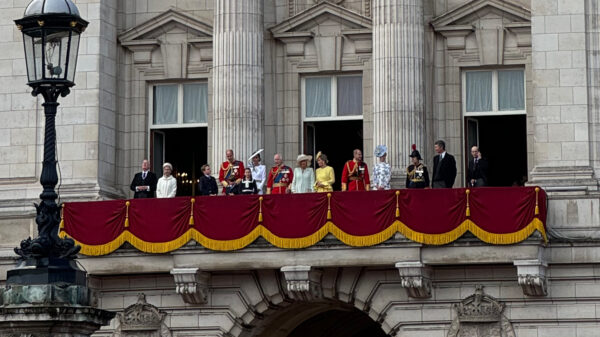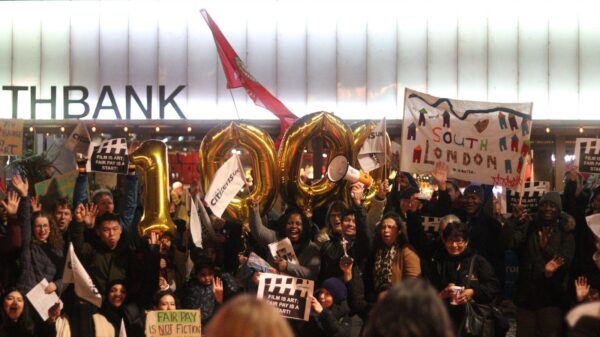Staff writer Grace Holloway discusses FIFA’s decision to have the 2034 World Cup hosted by Saudi Arabia.
Last week FIFA confirmed that the 2034 men’s World Cup will take place in Saudi Arabia. The decision has been met with scrutiny, with concerns over the country’s historical record regarding human rights and the environment. Concerns have also been raised around inclusivity for LGBTQ+ fans.
How was this decided?
Under FIFA’s rotational policies, each continent cannot host the World Cup more than once every twelve years. The 2026 World Cup is being held held in the USA, Canada and Mexico, while it was recently confirmed the 2030 World Cup will be played in Spain, Portugal, and Morocco, with the first three matches in South America.
Therefore their regulations meant only countries from Asia and Oceania could be considered for 2034. After Australia pulled out of the running, Saudi Arabia was the only potential candidate left.
The decision of selecting the host country is made by the FIFA Council and Congress, after bids are submitted and assessed based on various criteria. Saudi Arabia was granted the hosting after a vote at the congress earlier this month, which some criticised as being too fast-tracked.
There is also speculation that this deal has been influenced by the close connections of FIFA’s President, Gianni Infantino, and the nation. This includes a sponsorship deal between FIFA and the Saudi state-owned oil giant Aramco.
Within the voting process the nation received an average score of 4.2 out of 5, which was the highest ever awarded. The country’s willingness to invest within this project as part of its Vision 2030 economic diversification goal appears attractive to Fifa’s decision.
Why Has the Decision Received Criticism?
In the fast-paced decision making process that granted the nation the bid, there was minimal discussion of its ‘medium risk’ human rights concerns.
Saudi Arabia has been criticised globally for its repression of women, criminalisation of homosexuality, human rights record, extremely strict punishment and its strong autocratic government. It is governed by an absolute monarchy, with political rights and civil liberties highly restricted as opposition to the government is strictly banned.
Human rights organisations have begun to speak out against the decision, in a joint statement of more than 21 organisations.
“Together, we will continue to advocate for the rights of everyone in Saudi Arabia and beyond – migrant worker, resident, citizen, player, fan, activist or journalist – who may be impacted by the 2034 World Cup“
One of the main sources of criticism is Saudi Arabia’s strict criminal punishments, specifically for same-sex relations, which is still punishable by death. This issue also arose during the Qatar world cup, which received great public backlash across the UK, especially with the UK being a leader in ensuring LGBTQ rights in society and inclusion within the sporting world.
The second major issue with the World Cup bid is the lack of facilities Saudi Arabia has. The nation needs to build around 11 new stadiums. These aspirational stadiums contain designs which fit into the dessert landscape, appear as crystals, and one which fits into ‘The Line’ construction 350m above ground.
When Qatar held the 2022 World Cup, seven new stadiums were built, and this caused an influx of migrant workers, with just over 30,000 foreign workers hired just for this project. The concerns are over the conditions migrant workers experience, with often a lack of adequate rights protections and difficult working conditions, especially the heat. While the official death toll for workers in Qatar stands at 40, some organisations expect it to be in the thousands. The major project in Saudi Arabia could have the same or even worse effects.
The major construction plans also raise environmental issues, and while Saudi Arabia’s ‘the Line’ innovation appears to be a new effective sustainable model for the country, the nation relies on the oil trade for its financial resources accounting for around 40% of GDP.
FIFA itself has come under fire for its lack of environmental protection. With the 2030 World Cup having matches in South America, Europe and North Africa, a serious amount of carbon emissions will be created from the flights of both fans and players for various matches. It appears there is becoming a incentive of financial rewards of World Cup deals, without considerations for the environmental impact.
What would the tournament look like?
Similarities for the 2034 World Cup can be drawn from the competition in Qatar in 2022. The travelling fan experience was different with alcohol being illegal in Qatar, which is also the case in Saudi Arabia. The anti-LGBTQ laws may also discourage fans from attending, with potential alienation rather than the inclusion that many football leagues now seek to encourage.
Like the Qatar World Cup, it is likely that the hot summer temperatures will push Saudi Arabia to host a winter World Cup. This raises concerns about disruptions to other football leagues with the Premier League and other European tournaments potentially being forced to take a month long break. The issue with this is the increased intensity of football matches in the middle of the season, which could contribute to the already overwhelming injury issue clubs are facing.
What’s the future of football in Saudi Arabia?
Across the last decade, Saudi Arabia has looked to transform its position in the football landscape. Some have accused the nation of ‘sports washing’ by using the World Cup and other sporting endeavours to improve the nation’s image after years of criticism.
The nation has aspirations to become a major force in the football world. This comes after their their acquisition of Newcastle United, giving them a stake in the Premier League, as well as owning four Saudi professional clubs which have attracted key players such as Cristiano Ronaldo, Karim Benzema and Neymar to the Saudi League. This has brought a new audience to Saudi football, and no doubt has rewarded the nation financially.
Overall, the country is extremely ambitious regarding its internal growth, and clearly has a desire to extend its position on the international stage through football. The World Cup in 2034 is key in their ambition to become one of the leading nations within the sport. FIFA seems to have embraced this ambition rather than criticise its flaws, particularly due to the lack of alternative bids.















